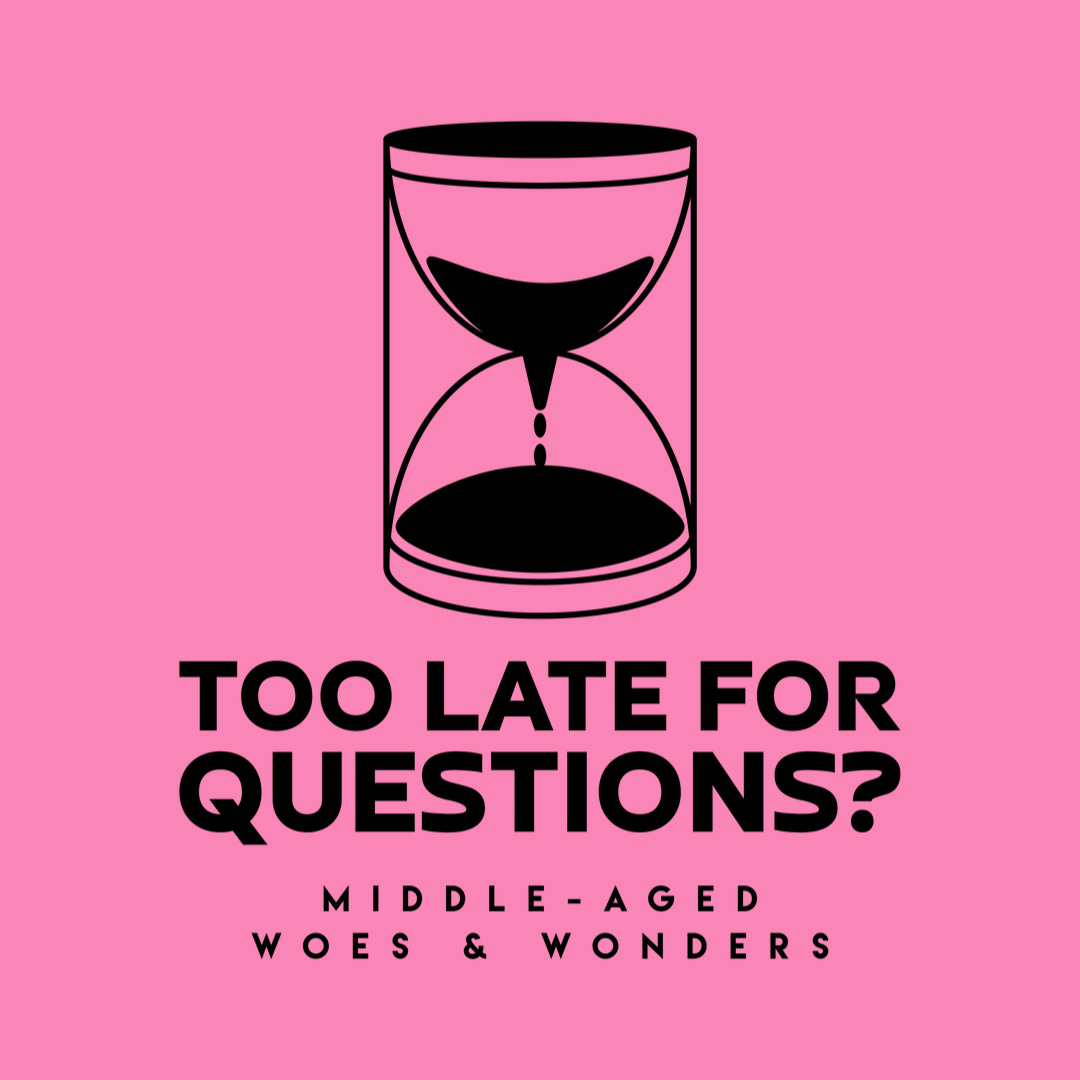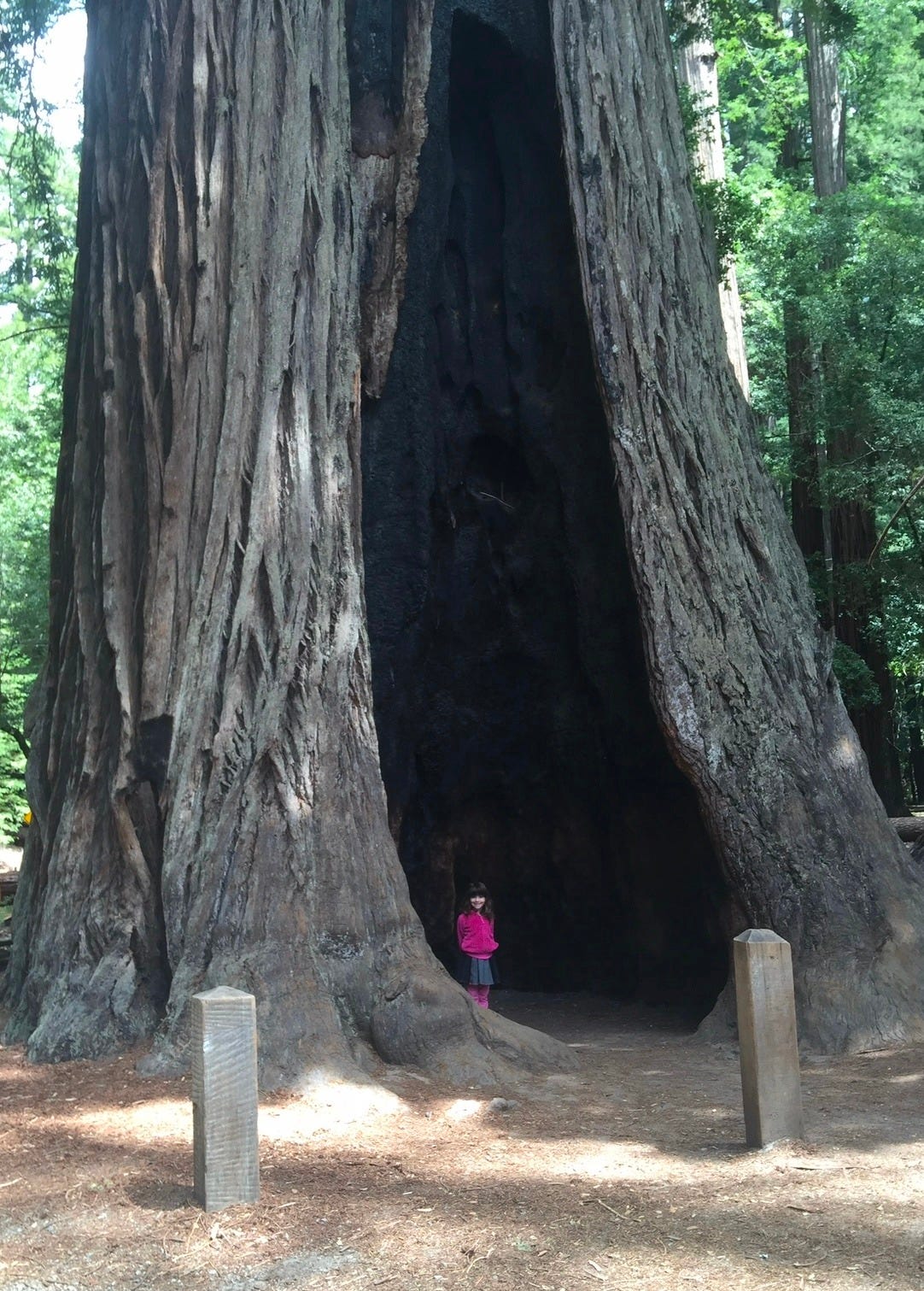Have You Discovered a Hidden Talent in Midlife?
I found mine while chanting a Sanskrit mantra.
Before the Covid pandemic, I used to host a Sunday meditation salon in my home for anyone who felt like showing up. Our meditation guru, Michael, would drive up from Miami and afterward, I’d serve fresh juice from our very hard-to-clean juicer. This was back when everyone was drinking celery. The celery sucked, but we downed it until Covid made us fear raw food.
Before I learned to meditate, I used to search for tranquility outside of myself and whenever I found it—in nature—I couldn’t take it with me. There’s simply no way to lug home an entire living forest. I wanted to move to the Pacific Northwest to live closer to the trees, but my husband refused to relocate.
I’ve always loved hiking. For me, there is no better way to exercise both mind and body than hitting a trail. Of course, where I live, a hike is a flat stroll. Birdwatching and wildlife viewing helps with mindfulness, but there’s no slope challenging you out of your mind. And back in 2019, I wanted out of mine.
My head was pounding from a brain tumor, but I didn’t know this yet. I only felt it, and having no medical diagnosis beyond “stress,” it was up to me to figure out a way to calm down and feel better.
A mutual friend introduced me to Michael. He was an advanced practitioner—a meditation master—who’d left an engineering career at Boeing for an ashram in India where he stayed for over a decade before returning to Florida and taking on private clients.
The first time we welcomed Michael into our home, he arrived barefoot in all white garb topped by a man-bun. Our adult son, T, who is an actor, thought this was a costume.
“Impressive,” T said afterward. “You found a guy who really gets into character.”
I had to explain that Michael wasn’t in cosplay. That how he dressed was part of his lifestyle.
Michael taught my family mantra-based meditation. We chanted in Sanskrit and learned pranayama, including alternate nostril breathing.
The kids dropped out fast. My husband tried to hang on but couldn’t stand the lack of movement. I did not feel abandoned. I let them leave with no pushback. My spouse and kids were the reasons I was seeking peace in the first place. Or so I thought. I didn’t know about the forthcoming brain surgery yet.
In the absence of my family, I was able to turn inward. And in I went. Deep in.
It turned out I was a natural meditator. Friends who’d practiced for decades would come to see me sit, silent and unmoving. I didn’t notice them observing me. I didn’t notice my thoughts because I stopped having any. I didn’t even notice time. There was no before. No after. I was eternal—while it lasted.
The purpose of meditation is not to gain attention, but I received more compliments than you’d hear at a preschool dance recital. People were envious too.
Damn, woman! I wish I could meditate like you!
It didn’t go to my head; in fact, my ego deflated each and every week.
Was this my great talent? Doing nothing?
I wanted to trade it in for some other skills. I’m always up for more linguistic tricks, and I could use some late-blooming culinary talent. I wasn’t even good at the celery juicing. I hated all that shopping and washing and chopping.
Meditation seemed too easy. I wondered if it was just dissociation rebranded by intentionality? Had childhood trauma prepared me for a mystical future?
Nope.
Research taught me that while both dissociation and meditation involve altered states of consciousness, they are distinct neuropsychological processes. Even so, I wondered if meditation shared too much neurological activity with dissociation. What if I triggered some lasting dissociative episode?
My capacity for worry threatened to reach new heights, but it never took hold. I noticed anxious thoughts arrive. I acknowledged them. Then I bid the worry goodbye. I grew blissful from all that meditation.
When I finally obtained the MRI that revealed the brain tumor, I slid into that tube feeling grateful for another opportunity to meditate in uninterrupted peace. I noticed the loud clunky sound generated by the imaging machine and didn’t mind—I knew I could transcend the experience with a mantra.
While the MRI technician was surely observing the tumor in real time, I was traveling the astral plane. A tumor was already strangling intracranial blood flow. It was also positioned to invade my superior sagittal sinus (the brain’s major vein). My physical body was headed for a devastating stroke (major f’ing woe) while my consciousness was headed straight toward nirvana (wonderful).
I ended up needing a craniotomy in May of 2020, right in the beginning of the Covid pandemic. I was dropped off at the hospital door—no visitors allowed. The surgical team couldn’t believe how calm I was.
I credited my meditation practice. It gave me something to control—my own breath.
And while the new skill helped me navigate through an otherwise harrowing experience with more grace, I also benefitted from the realization that I could discover new things about myself, including new talents, despite middle-age.
In a culture that values youth, there’s a mental trap we can easily fall into—it’s the erroneous belief that we’ve got nothing new left in us. I thought this was true until there I was, learning a new skill. I felt expansive, like I was growing beyond self-limitation. For decades, I’d believed that I was “too passionate” for inner calm.
It simply wasn’t true.
I can be both passionate and calm.
And who knows what else I’ll find out about myself during my remaining time? Why should we abandon our unknown potential before our time runs out? We shouldn’t.
I’m curious to learn what others have discovered about themselves in middle-age and beyond. How did it happen?
In my story, it was learning a new skill that opened a door. What other “triggering” incidents might create portals for personal growth?
All the best,
Jen xoxo










Great food for thought Jen! I’ve found that meditating during dental procedures is a unique gift. Especially tuning down the drill noises. ♾️💜💋
Just wow, Jen. What a great example of living with grace. And what a blessing that the craniotomy was successful.
FYI my memoir is about living in an ashram in my 20s, and the practices totally changed my life, even if the org was a little bit culty. Would love to discuss all things meditation / disassociation with you some day.